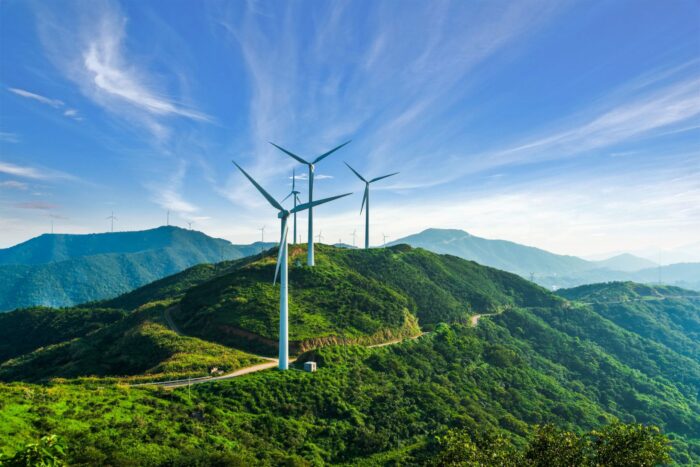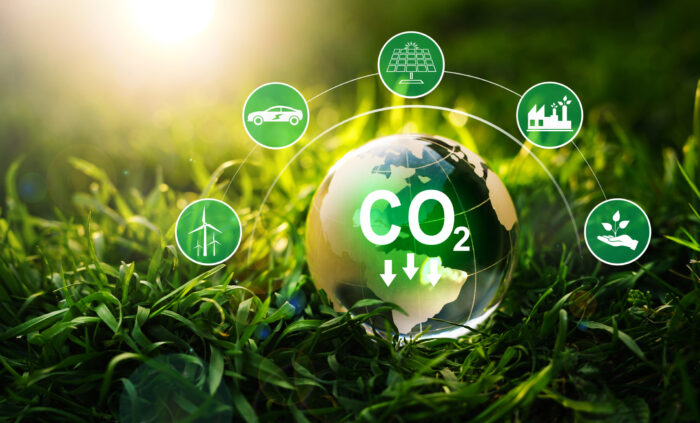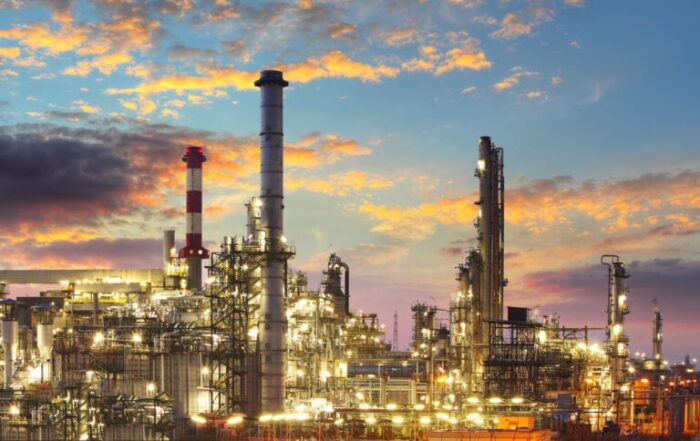
Decarbonization reduces carbon, mainly carbon dioxide (CO2), which is largely released into the atmosphere due to human activities. The aim is to create a global economy with low emissions and the capability of transitioning to a climate-neutral energy system.
Humans have increased CO2 emissions, one of the primary drivers of the greenhouse effect and, consequently, of global warming and climate change, by burning fossil fuels for economic expansion. Only an energy transition—a structural transformation that eliminates carbon from energy production—can lead to a decarbonized economy. This requires introducing clean fuel as an alternative source that only emits what the world can absorb.
Benefits of Implementing Decarbonized Economy
The goal of decarbonizing our economy is to battle climate change and ensure that global warming stays below 1.5°C relative to pre-Industrial Revolution levels, but there are several other benefits as well. Below, we look at the significant ones.
A Greener Future
Without a doubt, the impact that decarbonized economy will have on our world ranks as its top advantage. Nowadays, anthropogenic activity has a substantial negative impact on the environment and the native flora and animals. Reducing harmful emissions can also help keep extreme weather under control and keep us from reaching a point where there is no going back, in addition to reducing global warming. For the sake of future generations, it is important that we immediately decarbonize.
Better Community Health
Of course, there are real health benefits from a decarbonized economy that will directly affect our progeny and us, so it’s not just our descendants who will gain from it. Utilizing state-of-the-art technologies to monitor and reduce the number of pollutants discharged into the atmosphere would enhance air quality while simultaneously battling climate change. Reducing air pollution will greatly impact public health because it contributes to more than 7 million premature deaths worldwide.
Economic Benefit

The financial burden on the government because of the increased hospitalizations and deaths is another way to measure the health implications of a carbon-heavy planet. According to a New Climate Economy report, expanding low-carbon technology could provide $26 trillion in economic benefits by 2030. This manifests itself in a variety of ways, including less healthcare spending, higher staff productivity, and improved energy efficiency.
Self-Sustaining And Future-Proof
We can future-proof our societies against the resource scarcity that will eventually occur, even if not for millennia or more, by transitioning away from the usage of fossil fuels, which are limited and concentrated in the hands of a few numbers of resource-rich nations. Additionally, having the ability to power our homes and companies locally implies that we may no longer need to import energy from other countries, lessening our dependence on them and increasing our ability to support ourselves.
Social Benefits of Decarbonization

It has the potential to bring a wide array of social benefits, especially when viewed from a longer-term perspective. Most obviously, a reduction in emissions would mean fewer air pollutants and healthier communities. This would likely result in improved quality of life, increased ages of life expectancy, and reduced mortality rates. For marginalized communities and those living in poverty, decarbonization initiatives could offer significant public health dividends.
The consequences extend beyond physical health as decarbonization could shift the balance of power away from large corporations and fossil fuel interests towards vulnerable members of society by enabling greater access to energy sources that are cleaner, more affordable, and more reliable. As energy prices become less volatile due to an increase in renewable energy sources into the mix, families on limited budgets may benefit from this consistency.
This would also likely lead to more efficient production processes that create job opportunities – both blue collar and white collar – while providing quality full-time jobs with competitive wages rather than low-wage temporary positions commonly associated with traditional fossil fuel industries. This shift toward ‘green’ jobs may help reduce income inequality disparities due to both industry growth activity and job transitions which should generally benefit all workers over time; additionally it has been suggested this will put laborers back into control by:
- improving their collective bargaining power
- curbing rising wage costs for employers due to increased competition for available positions
- helping consolidate incomes levels with general inflation increases.
Get The Best Help for The Successful Implementation of Decarbonized Economy

Humans have greatly impacted the Earth’s temperature and climate since the industrial revolution. Huge amounts of gases are being released into the atmosphere because of human activities, including deforestation, increased animal rearing, and burning of fossil fuels like coal, oil, and natural gas. Due to the build-up of carbon dioxide, methane, nitrous oxide, and fluorinated gases because of these activities, the greenhouse effect is intensifying and leading to global warming.
The biggest environmental threat we have today is climate change, and there is a growth in public concern. Decarbonization of the economy has several benefits that can help the present generation and the future. Several countries and organizations would like to adopt it. It is best to reach out to an expert for the best guidance. Different firms can help by providing counselling and experts who can provide individuals with the framework and tips required to decarbonize an economy successfully.
Conclusion

In conclusion, the short-term politics surrounding decarbonization are difficult. It is difficult to convince citizens and politicians of rapid change while they witness their own economic costs rise in the interim. However, there is a clear view towards a long-term benefit of decarbonization policies both socially, economically, and environmentally.
Investing for long-term sustainability creates an economy that is resilient and less dependent on finite resources in the face of climate change and other global crises.
Decarbonizing our economies through technological advances such as renewable energy sources, electric vehicles and carbon capture technology can create investment potential, quality jobs and diverse growth opportunities in every sector. All of these steps will ultimately lead to environmental benefits from improved air quality to strong ecological networks with reduced risks from extreme weather events such as floods or storms.
In just one year of staying at home during a pandemic, the world has seen the impacts that collective action can have on preserving nature—therefore investing into green policies in order to decarbonize our economies more rapidly should be seen as an opportunity for global economic recovery rather than a burden.












